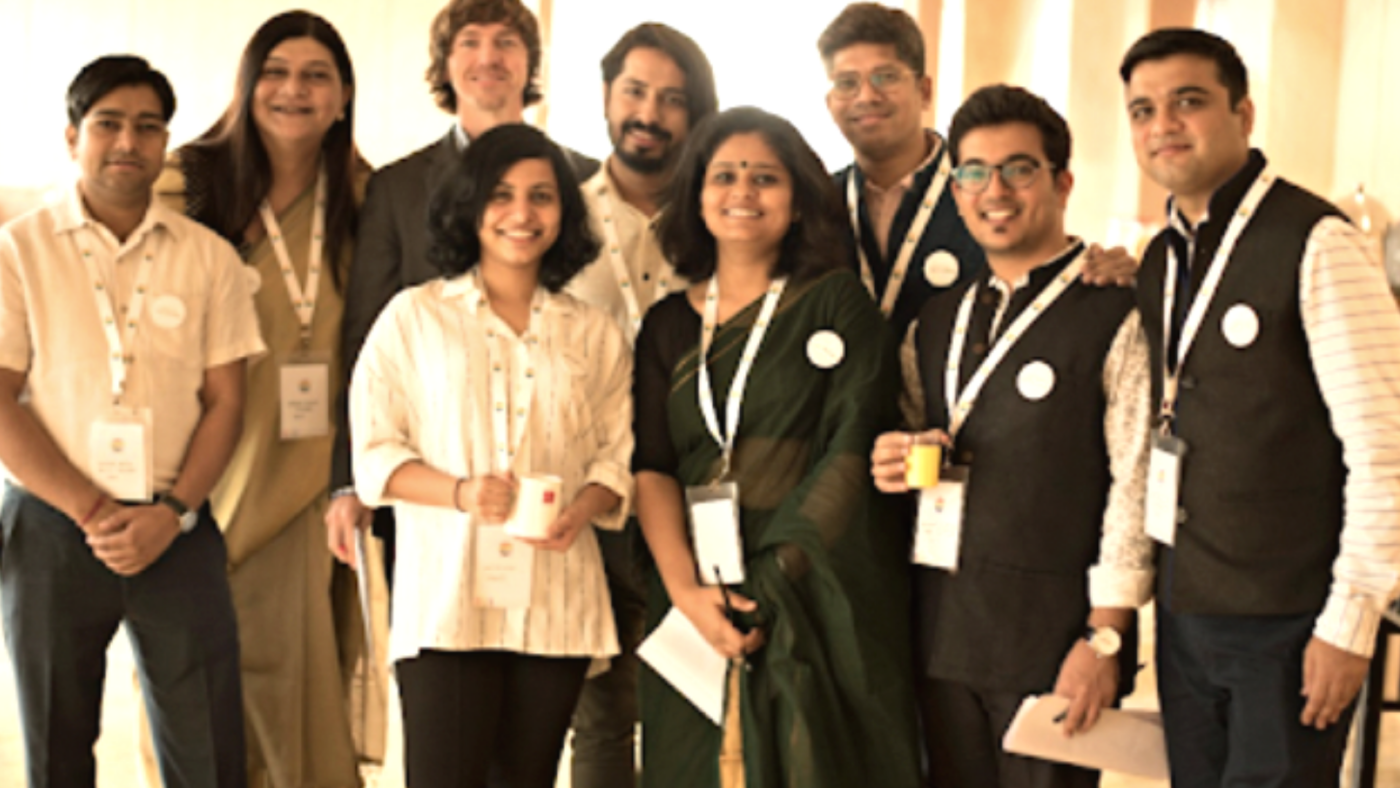Who you are and whom you love is not a justification for discrimination, harassment, and inequitable access to opportunities and resources.
December 2021

An event by the Washington, D.C.-based National LGBT Chamber of Commerce’s (NGLCC) international division, NGLCC Global, and Rajmala Welfare Society in May 2019 to formally launch India’s Diverse Chamber. Photograph courtesy Rajmala Welfare Society
When Section 377 of the Indian Penal Code was abolished in 2018 and same-sex relations were decriminalized in India, Justice Dhananjaya Y. Chandrachud said, “What makes life meaningful is love – the right that makes us human is the right to love.” For Rajmala Welfare Society (RWS), a nongovernmental organization and advocacy group originally founded in 2013, the end of Section 377 signified a major step forward for lesbian, gay, bisexual, transgender, and queer (LGBTQ+) rights in the Indian economy and workplace after many decades of persecution.
RWS is the recognized Indian affiliate of the Washington, D.C.-based National LGBT Chamber of Commerce (NGLCC) and its international division, NGLCC Global. NGLCC Global is a network of LGBTQ+ chambers of commerce and business networks all over the world. Their unified mission is to promote economic empowerment as well as inclusive economic growth for LGBTQ+ people and LGBTQ+ owned businesses. NGLCC and RWS build on the strengths of each partner and share best practices, while also developing a more thorough understanding of the challenges that individuals and business owners face in different regions of the world.
SPAN spoke to Sahil Vij, a Delhi-based taxation and strategic management consultant who serves on Rajmala Welfare Society’s board of directors, about the organization’s advocacy work to create equal business opportunities for India’s LGBTQ+ community.
Excerpts from an interview:
How does the Rajmala Welfare Society promote economic empowerment and inclusive economic growth?
Economic empowerment means when a community has an equal opportunity to participate in, contribute to, and benefit from the formal economy. For too many LGBTQ+ folks, discrimination, violence and stigma limit their ability to realize such business opportunities. Inclusive economic growth refers to the ways in which employment applies equitably across all sectors, social groups and socioeconomic classes. In contexts where LGBTQ+ people experience exclusion, there is significantly less economic output, which limits any meaningful redistribution into their financial well-being. RWS and NGLCC Global are committed to working with the private sector and public sector to develop ways to understand and foster inclusive economic growth for LGBTQ+ people.
What are some of the most prevalent challenges facing the LGBTQ+ business communities in India? What progress have you witnessed in your time working with RWS?
Two of our main points of emphasis at RWS are workplace diversity and inclusion, and supplier diversity. For workplace diversity and inclusion, we collaborate with various companies to design and implement LGBTQ+ awareness and sensitivity programs for management and employees. One such example is partnering with RISE, the first ever job fair for LGBTQ+ professionals, held at The LaLit Ashok in Bengaluru. The LaLit group is learning from us to educate Indian corporates about inclusivity in the workspace, benefits of hiring LGBT people and policies for retention. Incorporating diversity, such as varied sexual orientation and gender identity in workplace policies, helps businesses be more diverse and inclusive. In terms of supplier diversity, we aim to increase the registration of LGBTQ+-owned businesses to connect them with multinational corporations, such as GlaxoSmithKline and Kellogg’s, and international affiliate chamber leaders to increase their business network. The LGBTQ+ community is extremely talented, but is often left behind because the playing field is not even and they do not have an equal chance at business opportunities.
What new collaborations or projects does RWS have planned? What can you share about RWS’ plans for 2022?
We are working on a collaboration with the U.S. Embassy’s New Delhi American Center that encourages inclusivity through direct training for business settings. Our American partners will be collaborating with RWS on a lecture series to help train our business members and give them the tools to be complete packages in the workplace. We are putting together a four-week training program, with two lectures per week, starting in March 2022.
RWS also has a virtual speaker series, “LGBT – Let’s Get Businesses Together,” which just completed its eighth installation. This live speaker series is held virtually on Zoom as well as LinkedIn Live, and is a great way for participants to come together, share best practices and support each other.
Lastly, RWS will also work to promote equality in schools, the healthcare system, human rights and improve tourism in the country. RWS has also worked with the United Nations Information Technology Service in Delhi to bring more diversity and inclusion into their HR policies. This empowerment will reach individuals at all levels: in the labor market, workers in the formal sector, business owners and entrepreneurs.
For more information on Rajmala Welfare Society, please visit rwsindia.org.
Jason Chiang is a freelance writer based in Silver Lake, Los Angeles.
COMMENTS